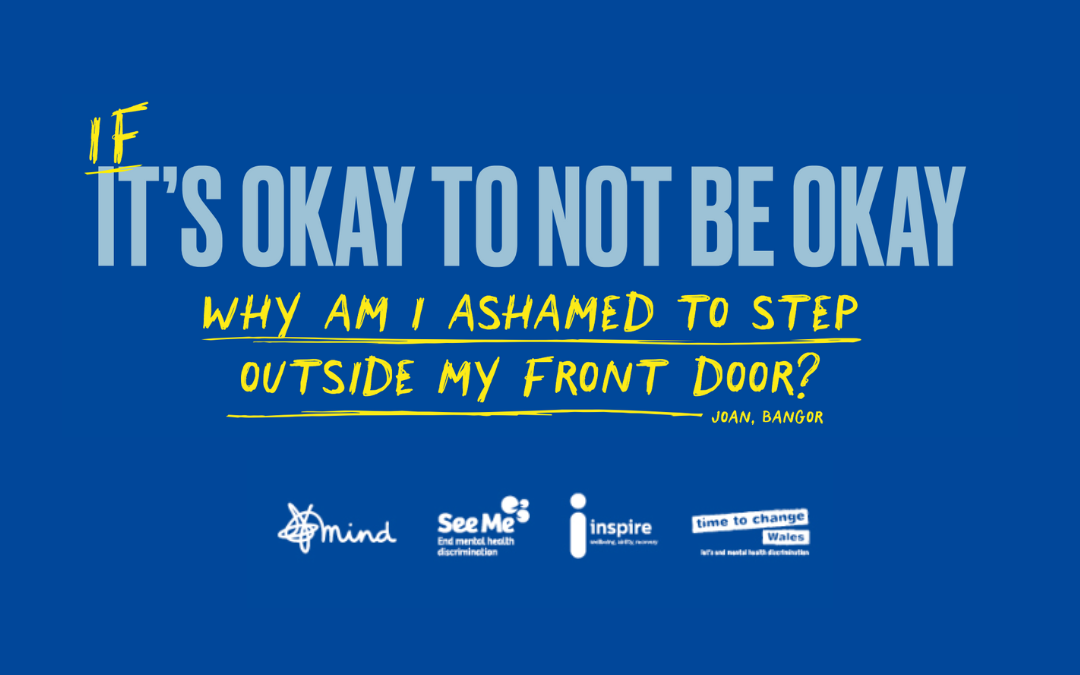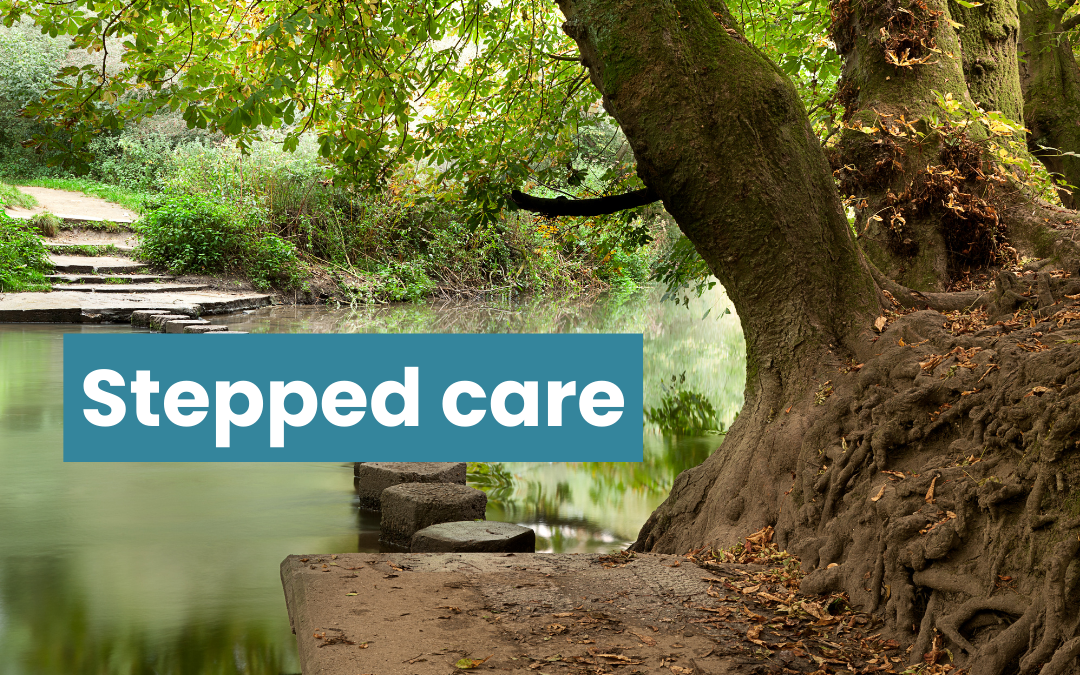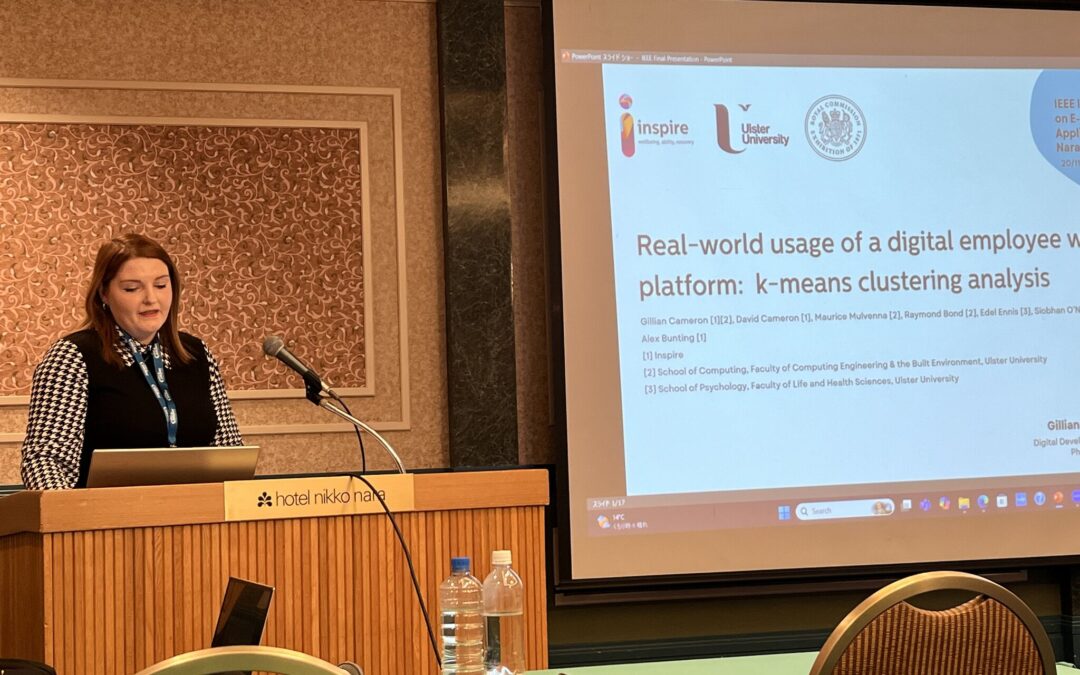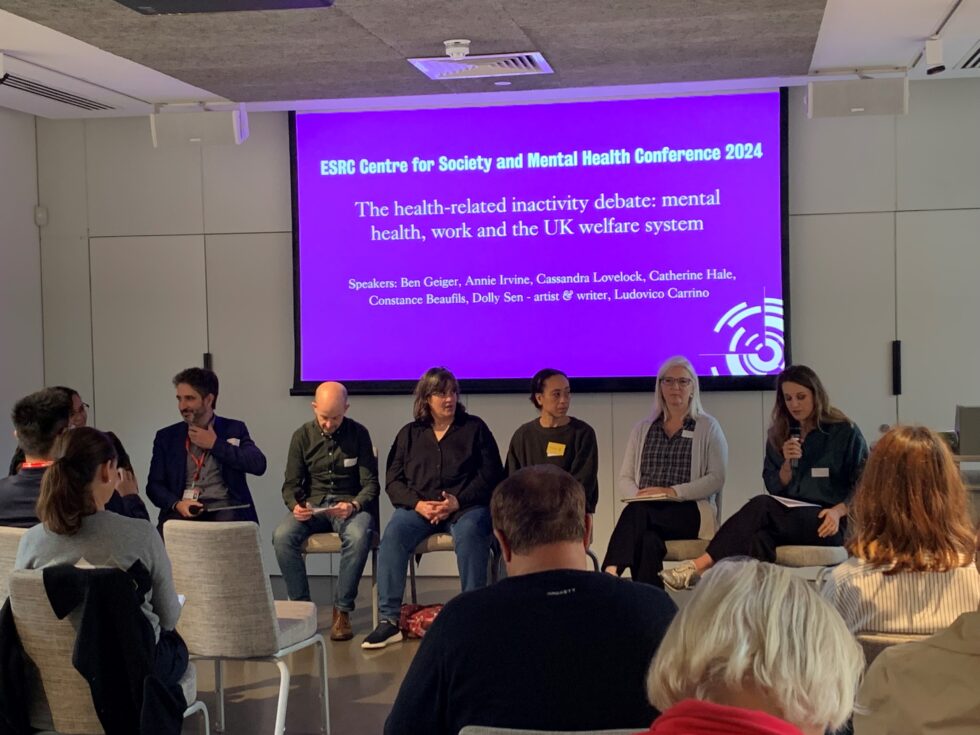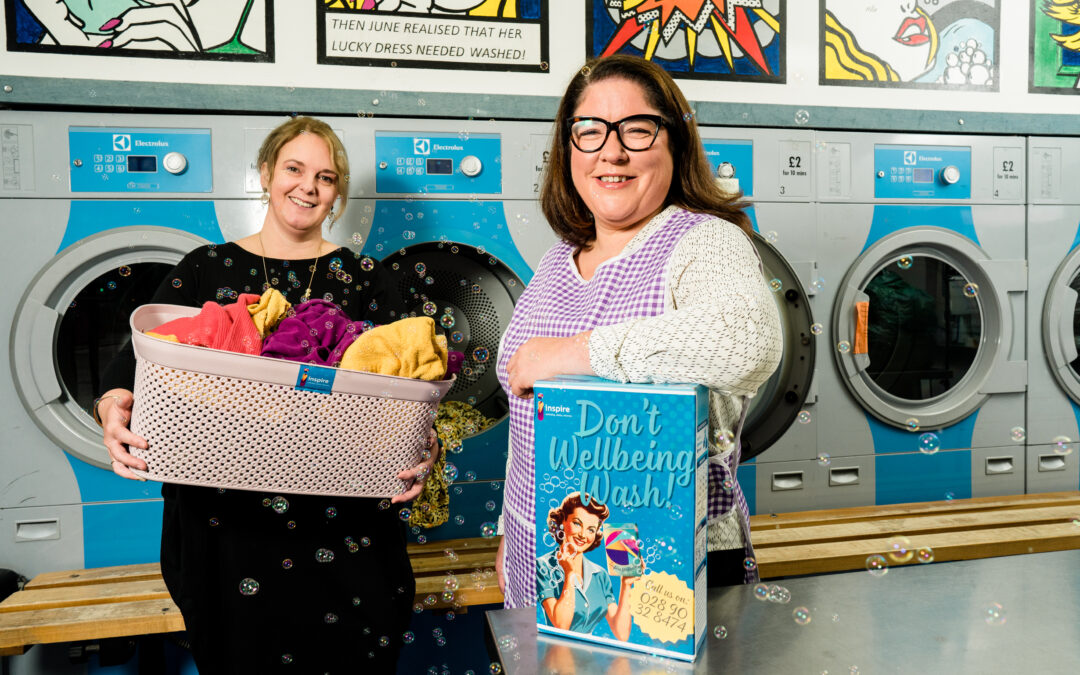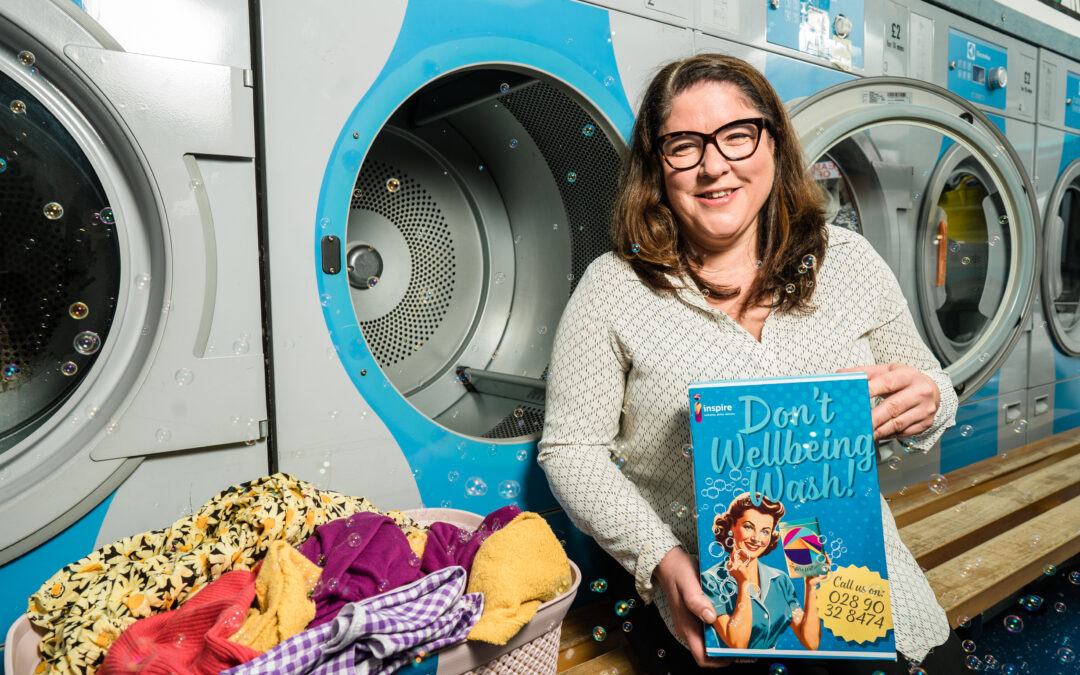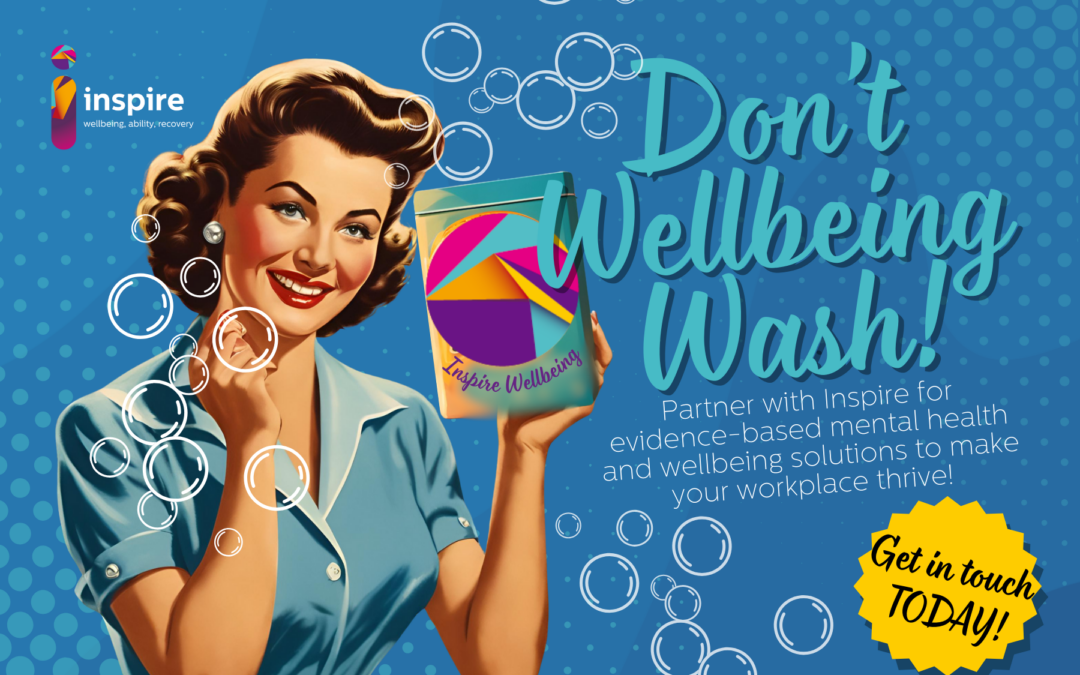A pair of newly published polls have revealed how people across the island of Ireland perceive mental illness. In response to figures highlighted by the research, Inspire has launched the If It’s Okay campaign, which focuses on the voices of individuals with lived experience of shame stemming from mental illness.
Two surveys, covering 1,000 adults in Northern Ireland (NI) and the Republic of Ireland (RoI), were carried out by Censuswide during late February 2024. They found that 14% of those polled in the North would be strongly or somewhat concerned about working alongside someone who is living with mental illness. In RoI, the number here was 20%. By contrast, 64% of people in NI disagree with that contention – as do 60% of workers on the other side of the border. The strongest expressions of support, in both jurisdictions, came from women and people aged 45 and older.
Elsewhere, 64% of NI respondents with experience of mental illness have felt shame because of it, while 55% think that the level of related stigma has decreased over the last five years. Their peers in RoI offered similar feedback on these respective questions: 59% and 58%.
Majorities in NI and RoI (53%; 57%) said that mental ill health is negatively portrayed in the media and that there is still a great deal/fair amount of shame associated with the subject (54%; 60%).
“It’s okay not to be okay” is one of the most well-used lines in mental health campaigning but, for many facing mental illness, this does not always ring true.
Inspire – a member of the Anti-Stigma Alliance alongside Mind, See Me Scotland and Time to Change Wales – is now using the new campaign to appeal to everyone to mean it when they say, “It’s okay not to be okay”. It is also appealing to the public, including people in workplaces everywhere, to challenge shame and discrimination directed against those living with mental health diagnoses.
It also aims to understand what the “It’s okay…” phrase might actually mean for a person living with mental illness.
Kerry Anthony MBE, CEO of Inspire, said:
“Inspire supports over 25,000 people a year and many of them live with serious mental illnesses. We hear about how their friends, families, communities and even their GPs can make them feel ashamed. But we also know about how they feel ashamed of themselves.
“This campaign is about challenging the narrative that many of us know and employ so often. We aren’t saying that the phrase ‘It’s okay not to be okay’ is wrong. However, the question we’re asking is this: if it’s okay not to be okay then why are people still encountering shame and discrimination around their mental health diagnoses?
“We are here to say that living with mental ill health does not mean that they are alone. Nor should they feel shame. We are here to help and support them.
“As a society, we have a long way to go. Over half the population believes that mental illness and shame are linked. We want to send a clear message that nobody should be ashamed of their mental ill health.
“By reflecting on our own attitudes and behaviours, we can develop self-awareness. Whether it’s thinking about the language we use, educating ourselves or reaching out for support, we can all play a role in changing lives for the better.”
For information about If It’s Okay, including advice and information for anyone living with mental ill health, click here. Follow the conversation on social media, via #IfItsOkay.
If you would like find out more about Inspire’s workplace wellbeing services, head over to this page. You can also reach out to us via e-mail: enquiries@inspirewellbeing.org.
More from our blog
Menopause and work
The menopause is a natural biological process. It occurs when your ovaries age and naturally produce lower levels of reproductive hormones. The menopause may have a significant impact on home life and work performance. This can be unsettling, particularly if a particular role carries lots of responsibility. The hormonal changes…
Understanding Stepped Care and its role in workplace wellbeing
The stepped care model is a fundamental part of Inspire's workplace offering. So, what is it and why is it so important?
Winter wellbeing 2024
The festive season is here and we’re keen to highlight some wellbeing tips for now and the New Year. Head into 2025 in the best possible frame of mind. Switch off Technology allows us to be constantly connected to colleagues, family and friends. That is often a good thing but…
Reflections on IEEE eHealthCom 2024: Insights, Innovation, and Inspiration in Nara, Japan
Inspire’s Digital Development Lead, Gillian Cameron, reflects on her recent trip to Nara, Japan for the IEEE eHealthCom conference. Last week, I had the privilege of attending and presenting at the IEEE eHealthCom 2024 conference in Nara, Japan. This annual event brings together researchers, industry leaders, and policymakers to discuss…
Mental Health on the Agenda at King’s College London
Inspire’s Policy & Campaigns Office, Matthew Coyle, reflects on his recent trip to King’s College London and the knowledge gained at the ESRC Centre for Society and Mental Health’s annual conference. I had the privilege earlier this month of attending the ESRC Centre for Society and Mental Health’s third annual conference in…
Healthy Organisations Commit to Person-Centred Wellbeing
Employment takes up a good deal of our time. According to the Office of National Statistics, the average UK worker spends over 36 hours in work every week; in Ireland, that figure is 38.5. On World Mental Health Day, understand the effect that wellbeing washing can have on workers and…
On World Mental Health Day, Here’s How to Avoid Wellbeing Washing
As we count down to World Mental Health Day on 10th October, Inspire’s focus is very much on our ‘Don’t Wellbeing Wash’ campaign. Wellbeing washing is similar to green washing, its arguably more infamous cousin. It describes a company or organisational ethos that focus more on the illusion of staff…
World Mental Health Day: Don’t Wellbeing Wash
World Mental Health Day (WMHD), which takes place every year on 10th October, offers us all an opportunity to gather and talk about mental health, demonstrating to everyone that this is a subject worthy of open, honest discussion and explanation. In 2024, Inspire is marking WMHD by highlighting the important issue…
Government Action on Work-Life Balance a Positive Sign
The UK Government has announced plans to introduce new codes of practice for businesses, which are aimed at tackling burnout and codifying a right to switch off. This follows on from Labour’s campaign pledge to empower workers, providing them with the freedom to disconnect from their jobs outside regular hours and…
Line Managers are Key to Workplace Wellbeing
According to new research published by Queen’s University Belfast and the University of Nottingham, strong links exist between positive business performance and mental health training for line managers. Furthermore, the analysis of workforce practices suggests that recognising this, and acting on it, could save organisations millions every year. The study…
Workplace Conflicts Require Proactive Approach
Discord between colleagues is not unusual. The average workplace brings together individuals from different walks of life, people with distinct characteristics, objectives, points of view and ways of doing things. Quarrels are bound to develop from time to time. They can, however, have a significant impact on an organisation’s productivity,…
CIPD Conference Stresses Authentic, Empathetic Leadership
Inspire\'s Noelle Higgins, Business Development Manager – Therapeutic Services reflects on the recent CIPD conference and research. My colleague Jonathan Cody and I recently took the opportunity to head to the CIPD conference at the RDS, enjoying a day away from our e-mails and catching up with a range of…

